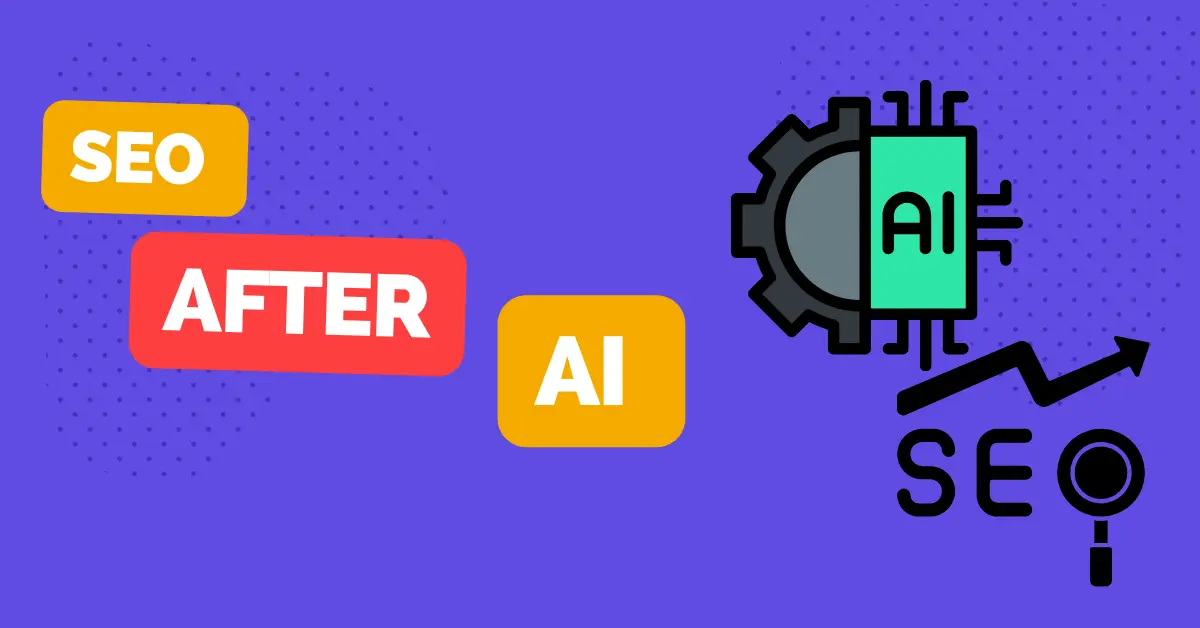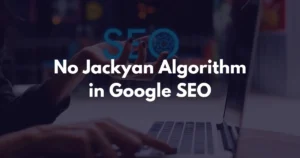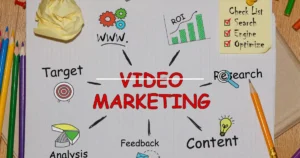These days, artificial intelligence (AI) is used in a lot of modern technology and services. Since November 2022 there has been a massive change in the technology after launching ChatGPT. Search engine optimization (SEO) is starting to be impacted by AI too, specifically machine learning and neural networks. AI is affecting SEO in small ways now, but that impact will likely grow.
In this article, we’ll talk about some of the main ways that AI and SEO are starting to overlap. AI is just beginning to interact with SEO, so we’re probably only seeing the start of how the two will influence each other down the road. But even now, AI is starting to change SEO in some direct and indirect ways.
How AI and Machine Learning Are Affecting SEO
Search engine algorithms are complex systems designed to analyze web pages and decide how relevant they are for different search queries. In the early days, Google engineers like Larry Page and Sergey Brin built these algorithms using computer code. Later, an engineer named Matt Cutts also contributed code to improve search quality.
Then, machine learning entered the scene. Machine learning is a type of artificial intelligence that allows computer systems to learn and improve on their own, without needing humans to update the code.
In 2015, Google introduced RankBrain. RankBrain uses machine learning to process search results and make them more relevant. It has become Google’s third most important ranking factor.
(Side note: Human engineers do still update the search algorithm code, but machine learning now handles more of the process.)
As artificial intelligence has advanced, Google has rolled out more complex software to better understand searches and match them to the most relevant results. The company will likely continue adding more AI components to keep improving the search experience.
AI Content May Soon Take Over
Content is still very important for search engine optimization (SEO). But in the past, content required human writers. Now, artificial intelligence (AI) is starting to take over content creation.
A report from a European law enforcement group predicts that by 2026, up to 90% of online content could be AI-generated, rather than written by people. This has many human writers and copywriters worried about losing their jobs.
But for SEO experts, AI content could actually be helpful. AI is getting better at understanding language and meaning. So AI tools could analyze existing website content and give suggestions to optimize it for search engines and users. The AI could recommend new keywords to focus on.
AI can automatically create metadata, tags, and other on-page elements used in SEO. So in the future, AI may handle more of the optimization process automatically.
Content Creation and Optimization
While content written exclusively with AI still has quality issues, the tools can help generate drafts to give SEOs a head start. Refining and optimizing that raw content for search engines remains critical. AI could one day match human quality levels through continued progress.
For now, the combination of AI support and human supervision helps improve content efficiency and speed, especially for enterprise-level needs. Simply put, more content is needed today to capture rankings on infinite permutations of long-tail keywords.
RankBrain and Neural Matching
In 2015, Google launched an AI system called RankBrain. While the details are secret, we know RankBrain uses machine learning to better match searches with web pages.
Unlike older search algorithms, RankBrain understands concepts and meanings – not just keywords. So it can connect searches with relevant content, even if the pages don’t contain the exact search terms.
This means website owners now need to optimize for semantic search, not just keywords. Creating content around groups of related topics can signal relevance to RankBrain. That then improves rankings in Google search.
Algorithm Analysis and Optimization
Understanding how Google’s search algorithms work has always been difficult. But adding artificial intelligence (AI) makes it even more complex. AI allows Google’s algorithms to change and adapt constantly on their own. So there are simply more possibilities for how the algorithms work and evolve.
For SEO professionals who analyze search engine results pages (SERPs), AI brings challenges but also some potential opportunities. By detecting patterns in AI-influenced search results, SEOs may uncover new optimization theories and models.
Essentially, by closely studying what types of content perform well in the AI-powered results, SEOs may reverse engineer effective tactics. Competitive intelligence will become even more important to stay on top of Google’s ever-adapting AI systems and algorithms.
Automated Audits and Insights
For a while now, analytics tools have provided SEO audits and reports. But artificial intelligence (AI) can take that to the next level using computer vision and language processing.
AI can catch issues that humans might miss. It can flag those problems so they can be corrected or improved.
Machine learning allows AI systems to analyze huge numbers of signals from top websites. Those learnings can then be built into tools anyone can use to audit their own site’s SEO.
By automating in-depth audits, AI saves SEO analysts a lot of tedious work. So AI lightens the workload for human experts considerably.
SEO in the Age of Artificial Intelligence there is check list of What to follow and what to avoid.
What to Do
✅ Focus on creating high-quality, in-depth content that answers user questions and provides value – don’t just target keywords. Relevance is key in AI matching.
✅ Optimize content for semantic search and related sub-topics. Use tools like RankBrain and BERT to expand beyond just keywords.
✅ Take advantage of automatically generated content as a starting point that still requires human refining tailored to users.
✅ Utilize AI audits and reporting to surface issues and insights that humans alone might overlook at scale.
✅ Learn to interpret signals with AI influence and double down on areas that demonstrate positive algorithm responses.
What Not to Do:
❌ Not to Rely completely on AI for content quality control. Human eyes are still needed to spot issues.
❌ Ignore the search intent and needs of visitors. No amount of AI currently replicates human wants/emotions.
❌ Assume past SEO strategies will work the same way with emerging AI capabilities. Be prepared to adapt approaches over time.
❌ Disregard the importance of links, trust signals, and site authority. AI determines relevance yet those factors still carry weight.
❌ Get caught overly automating tasks without enough human supervision and culpability. Manual work provides greater transparency.





